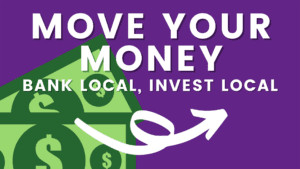Free is a pretty compelling price. How can you compete with that? Is it possible to add enough value to be worth more than a competitor that is free?
| Cheap or Free Photo by Chris Brogan |
The recent controversy within the social media community over Chris Brogan’s Blog Topics newsletter provides a pretty good example. I’ve known Chris for years, and we’ve done business together, but I have no connection with his blog topics service.
Charging for Blog Topics
Chris is offering a weekly e-newsletter of blog topic ideas and charging just under $10 a month for it. This caused backlash from people who didn’t like him charging for what seems like a very simple service: a list of blog post topic ideas. I heard it referred to as a ‘rip off’ since others offer blog topic ideas for free.
Charging money for something of value is not automatically a rip off, even if others offer a similar thing for free.
How does Chris compete with free? How does he keep it from being a rip off? He adds extra value to his service. Let’s see what we can learn from how he does it.
Adding Value
1. Over deliver on content.
Based on the sample of his newsletter, Chris is not just emailing a bullet point list of ten blog topic ideas. He writes a paragraph description and direction on each topic. He includes a piece of writing advice in each issue. His goal apparently is to help people improve their blogs overall, not just through topics.
Make sure you pack your products full of extra valuable content.
2. Build a community.
Chris is connecting those who subscribe together with many interactive features. He describes it as “a writing group stuffed in your email.” He also added a Facebook Page to allow members to share their experiences. And by creating that group in a public place, others can observe. Never forget the Liz Strauss point: in social media there are at least three sides to the conversation: you, the person you are talking to, and the people outside observing.
You can give your customers ways to interact with each other. Do it publicly, if appropriate.
3. Share the spotlight.
Chris is currently featuring some posts written by members of the blog topics community on his own blog, that ranks in the Advertising Age top 5 with over 200,000 unique views a month.
You should be the social media mirror to your community.
4. Be committed.
Chris has a strong incentive to keep this service going and high quality: 250+ paid subscribers as of this writing. Those offering free services have weaker incentives: support from their audience, exposure, and good feelings.
There is nothing like cold hard cash to build your commitment to your customers.
5. Give access to you.
Chris’s subscribers know they are part of a very small group, with much better chance of getting his attention. (It’s easier to be one of 250, than one of 200,000.) And paying customers always get a higher priority than non-paying customers.
People crave personal attention. Make your paid products one way to get more of it.
How We Do It at Tourism Currents
Sheila Scarborough and I run Tourism Currents, to teach updated marketing skills to tourism professionals. We definitely over deliver on valuable content, tailored specifically to tourism. (Sheila simply will not stop stuffing even more valuable information into everything we do.) We make ourselves available to our paid members through email and a forum. (I’m thinking of re-working the forum into a comments section, but we’ll still be making ourselves available there.) But we can do more to connect our members with each other, and to be their mirror. During our charter offering, we used the commitment of paying customers to drive us to complete the course.
While there are plenty of free lessons and resources available on social media in general, we excel at customizing everything we create specifically to tourism, as well as adding value in these other ways.
Your Small Business
How are you competing with free?
- About the Author
- Latest by this Author
Becky started Small Biz Survival in 2006 to share rural business and community building stories and ideas with other small town business people. She and her husband have a small cattle ranch and are lifelong entrepreneurs. Becky is an international speaker on small business and rural topics.











This comment has been removed by the author.
Becky,
I couldn’t agree more with your post and what Chris is doing. For the last two years I have had an unsettling feeling that people believed that all great content should be free.
It is understandable that the idea of “giving freely will bring back results” and at times we should impart our wisdom, advice, or insight in order to help others. However, I have seen where “free” truly devalues ones products or services (and this has been over the course of 25 years in business).
What I have also observed in my own business and in others, is that free doesn’t motivate people to take action. My computer is littered with downloads I have never read and I have more logins to BETA products than I could ever touch in a lifetime. Same for membership programs.
I am a capitalist to the core. I’ve paid by dues and worked hard and I believe that I should be paid for this. Great job Chris!
Remember. You get what you pay for!
P.S. Sorry about the reposted comment. Technology issues this morning. ;)
James, I think of it like a sample. Give away a taste, and then add a paid level. There are plenty of people perfectly willing to pay. But the clamor of those demanding everything free can make it hard to hear them.
Wow, great post Becky. How could people be upset with Chris for this? Chris already gives so much for FREE. If you pay attention to what he gives you for free, how can you question what he’ll give you for a fee? The great thing Chris is doing here is showing all of us the way out of free.
Cheryl, that’s a good point: Chris still offers long lists of blog post topics for free. He didn’t remove his free material; he added a paid component. Each of us can use the same in our business. But the reaction Chris got is one we’ll get, too. It pays to know that.
Such a hard problem we are all dealing with! Luckily there are tools that can at least help to keep the costs down.
Totally agreed with all that has been said, above.
James’ point – I’d amplify – if people pay for something, they are more likely t place a greater value on it. If we had free gym memberships, we’d go less often than if we paid a monthly fee.
Hallie, I’d rather see small business focus on building more valuable products than to focus on costs.
Paul, you are completely right. We don’t value free items nearly as much as ones we pay for.
When I was a kid we used to watch FREE TV stations and drink FREE water (basically) from the tap. No one would even think of paying for radio stations. But today we have cable TV, bottled water, and satellite radio. Hummm. How dare these greedy bastards ask us to pay for better products. Oh yeah, we live in the United States. I almost forgot. It is a free market place (mostly), and we have the freedom to choose. Freedom to buy. AND the FREEDOM to offer products and services for a profit.
Seriously? People were upset by this. WOW. Becky, you did a great job at being nice and diplomatic. I am not quite so nice.
Nick, rather than worry about the negative reaction of the few, a smart entrepreneur can focus on adding value in all the ways discussed.